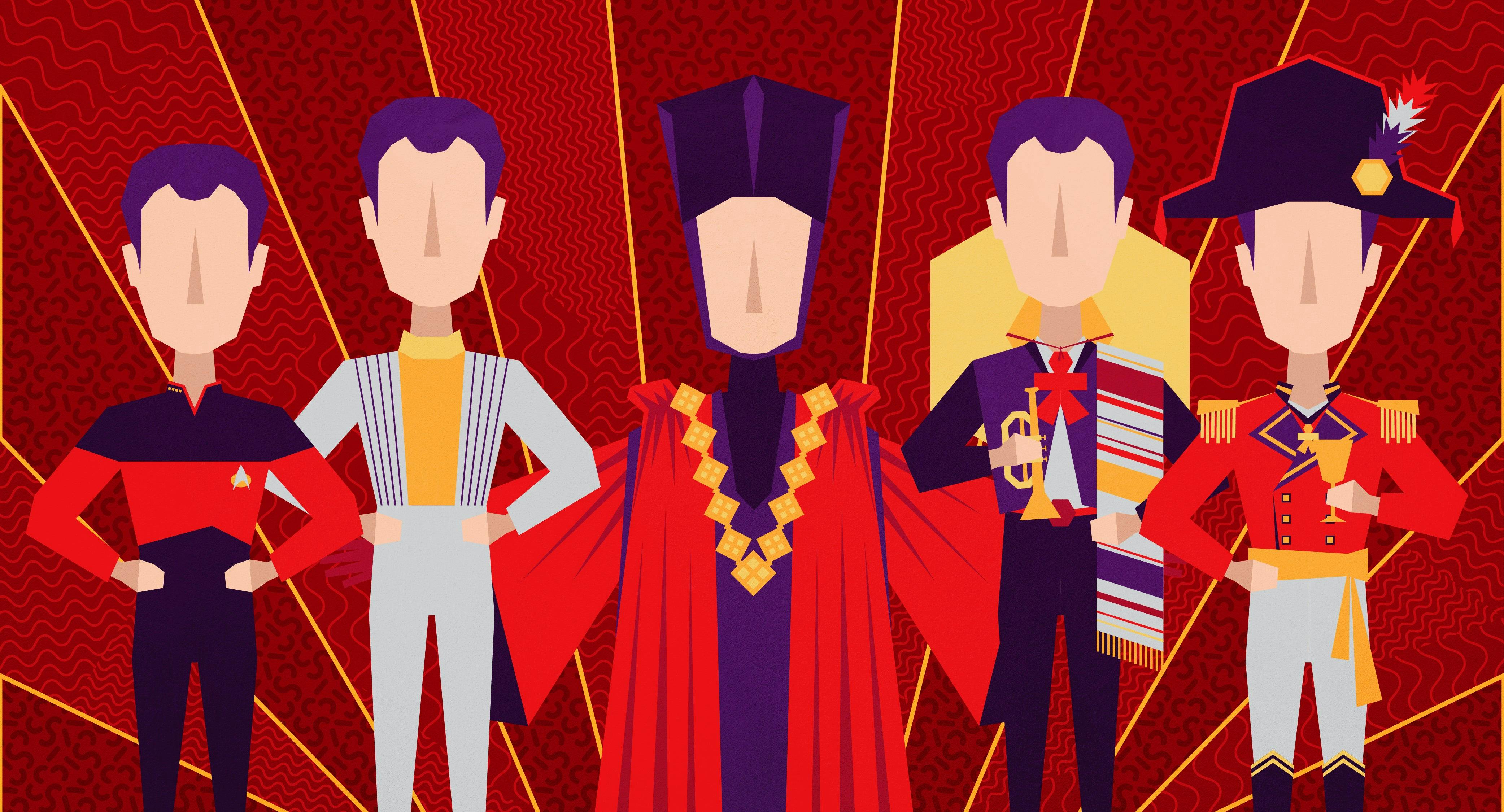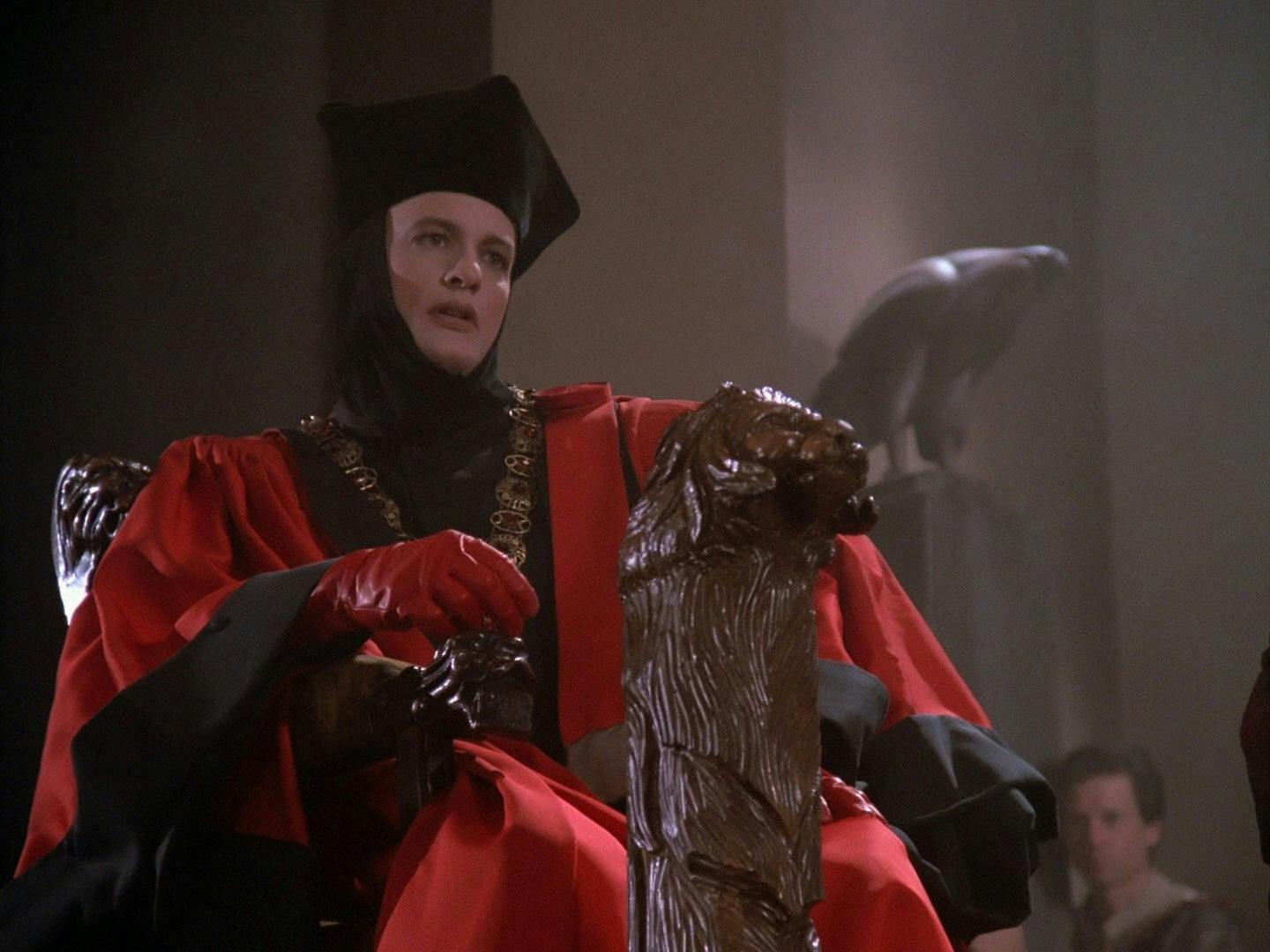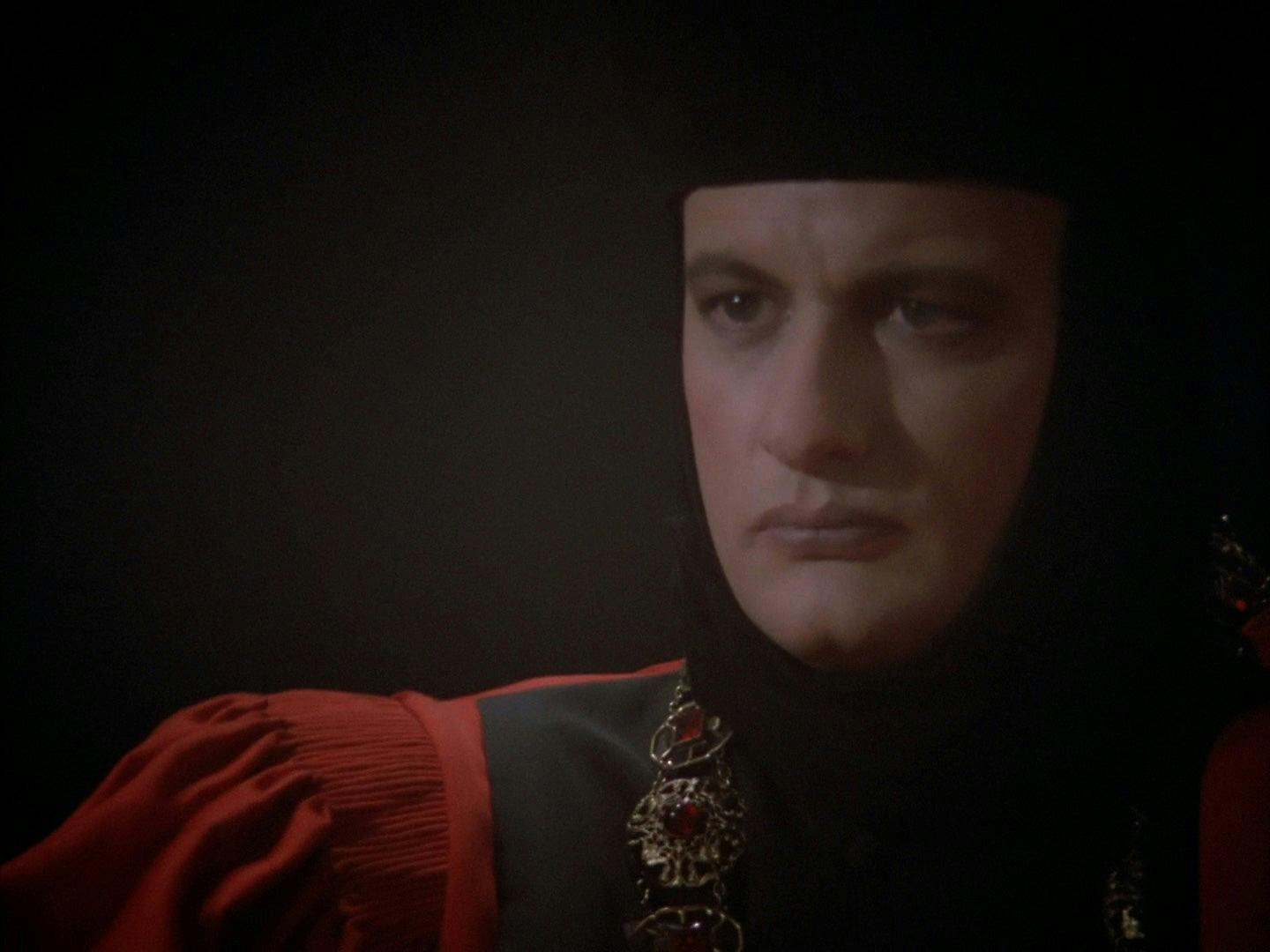Published May 4, 2021
Everyone Loves Q (But Which One?)
"I thought the name might be a reference back to Star Trek - and I was disturbed when I found out what this new Q stood for."

StarTrek.com
There is clearly something mysterious and seductive about the letter Q. From The Next Generation’s fan-favorite character; to an ambiguous online cult leader; to the eponymous main character from a 90s Italian novel. Each of these Qs is an enigmatic, powerful figure behind pivotal events, and yet shrouded in secrecy. And now, the fictional world has spilled into the real thanks to the dark influence of the Q in Qanon.
Q played a pivotal role in securing the continued legacy of Star Trek — starring in the pilot episode for TNG “Encounter at Farpoint.” The omnipotent being appears out of thin air and puts all of humanity on trial, with Captain Picard and his crew standing in as representatives of Earth. He declares that he is part of the Q Continuum - a race of all-powerful beings, all named Q and living in a dimension imperceptible to humans. Q reappears regularly in the Star Trek universe from that point onward, in both TV series and books. So when the various Qanon hashtags began spreading on Twitter and Instagram in 2019 and 2020, I was at first deeply confused. I thought the name might be a reference back to Star Trek - and I was disturbed when I found out what this new Q stood for.

StarTrek.com
Q, of QAnon fame, originated in October 2017 in the irony-poisoned message boards of 4Chan. This Q, too, appeared as if from thin air, in a discussion board where users took turns imitating high-ranking members of the US intelligence community, from the FBI to the Navy. Q explained that his name was to indicate his Q level clearance — given to those who are part of the USA’s Department of Energy. He predicted that Hilary Clinton would soon be arrested. Rather than quizzing the new arrival to catch them out and make them break character, as the board normally did, something about this new poster caught 4Chan’s imagination. The board lit up with delight at the prospect of Clinton’s arrest.
Q began to develop beyond this initial board. A series of obscure and arcane messages followed, (now known as the QDrops) in which Q predicted various deaths and catastrophes — none of which have come true. The content eventually became too toxic even for 4Chan, and the Anons (as followers of Q call themselves) were booted from the platform. 8kun — an even darker and more lawless corner of the internet — gladly welcomed them. While some argue that there are two distinct Q voices (one pre-8kun and one post-8kun), that did not stop the cult of Q (whoever they were or are) from growing around them, The Anons believe in a literal demonic secret society of cannibalistic pedophiles who secretly control America. Coincidentally, those so-called satan-worshippers all happen to be political opponents of President Trump, whom 4Chan largely supported.
John de Lancie on Creating a Star Trek Icon
The cult of Q gleefully fantasized about the mass murder of Democrats, to such an extent they were banned from Reddit. Facebook and Twitter made half-hearted attempts to remove them, too. Anons and their beliefs were almost like a secondary virus during the pandemic, spreading like wildfire through social media and decimating families. Numerous crimes — from kidnapping children to assassinating mob bosses and terrorist activities on the Hoover dam — have been linked to Qanon supporters. Then came January 6; white supremacist paramilitary members mixed freely with the Qanon adherents in the rush to invade America’s Capitol building. One of the most enduring images was of the Q Shaman, a regular at Q protests for years, bare-chested and roaring in the chamber of the House.
If Star Trek’s Q had been judging humanity based on the actions of the Anons, he would have come to a different conclusion than he did in "Encounter at Farpoint". It’s easy to laugh at the Anons, with their beliefs in mole people and secret codes of red shoes and pizza. But they are full-blooded fascists, who openly fantasized about mass executions and have beliefs inspired by antisemitic conspiracy theories. They are obsessed with pop culture, frequently telling each other to ‘sit back and enjoy the show’ and to ‘grab the popcorn’. Even their infamous saying ‘Where we go one, we go all’ (or WWG1WGA) was lifted from the 1996 boating/adventure romp White Squall.

StarTrek.com
The mysterious Q of Qanon has similarities to Q of Star Trek — both are representatives of shadowy, anonymous and all-powerful (and fictional) societies. As Q befriends Captain Picard, working to inspire, test and save him, Q from Qanon is seen to work in tandem with Trump. And while in Star Trek, the impish Q might create illusions to teach the crew of the Enterprise a twisted sort of lesson, the Q from Qanon seems to have drawn thousands of people from around the world into a shared toxic delusion.
There is a third Q in this mix: the enemy of a European revolutionary from a 1999 Italian novel. The book was written by an anonymous collective who published under the name ‘Luther Blissett’. Their numbers have dwindled from hundreds in the 90s to a handful of people who now publish under the name ‘Wu Ming’ (which can be translated as ‘anonymous’). Back in 2018, journalist Annalisa Merelli pointed out the similarities in the novel to the Qanon conspiracy theory. It’s intended to be a handbook to push back against the status quo - the hero is a revolutionary who travels through Europe starting rebellions. He is pursued by a shadowy figure named Q who is working for the Catholic church. These anonymous networks and references to revolutions might be what leads Anons to assert that their movement goes back decades, hundreds, even thousands of years. Anons also make allusions to the American president as a Christ-like figure, with Q as a guardian angel. They believe he is in some ways the second-coming, destined to remake the Earth. This links to the religious themes of the novel, Q, as well as to omnipotence of the god-like Q from Star Trek. This blend of fascism, conspiracy and religion is a powerfully toxic mix — and has led to church leaders in the USA to warn about it infecting faith communities.
Star Trek: Lower Decks - Q Shows Up On The U.S.S. Cerritos
So all 3 Qs are enigmatic and potentially malevolent figures, pulling the strings behind important events. Q from the novel is the antagonist and Q from Star Trek is an anti-hero, while Q from Qanon is so clearly a villain to outsiders. But the question is: will Anons wake up and see Q for what he is? My great hope is that, like so many of the Starfleet crews who have encountered a Q of their own, the Americans who have been tricked will be able to wake up from the delusion Q wove around them, and go back to their lives and families.
Hannah Copestake (she/her) is a British writer whose work critiques pop culture and digital life. She is studying for a Masters in Digital Society from the University of Edinburgh and holds a BA in English Literature and Creative Writing from the University of Birmingham.
